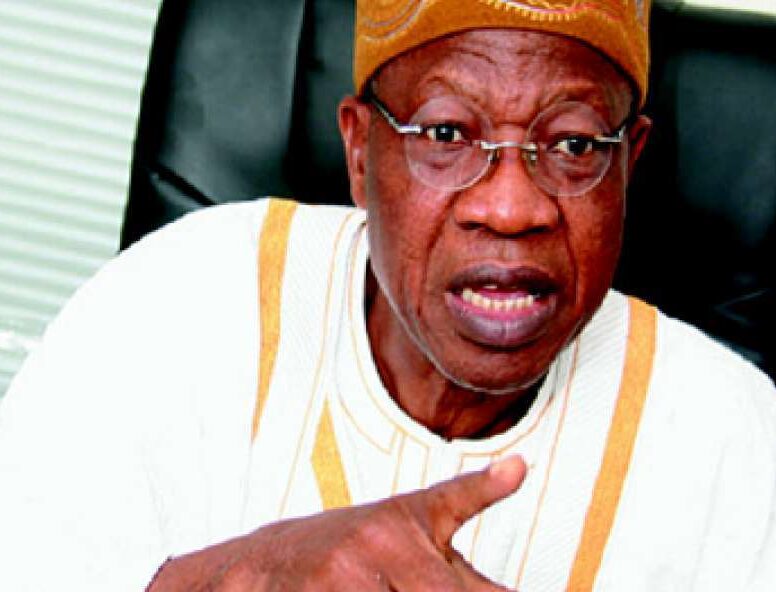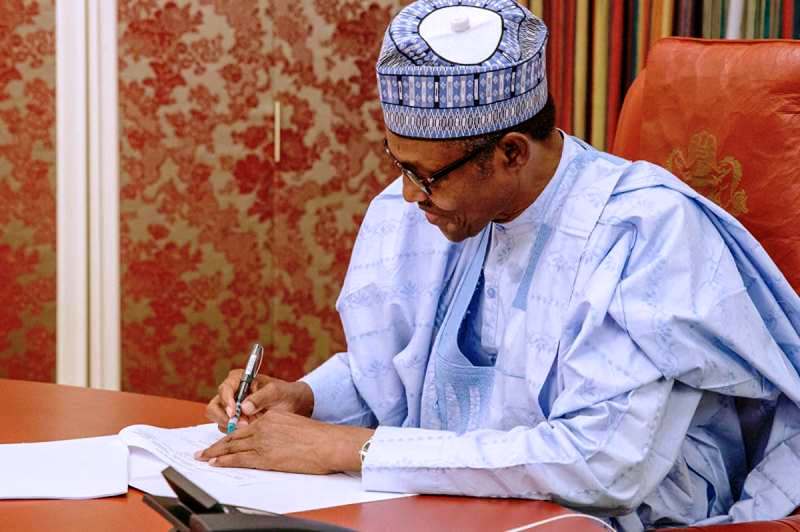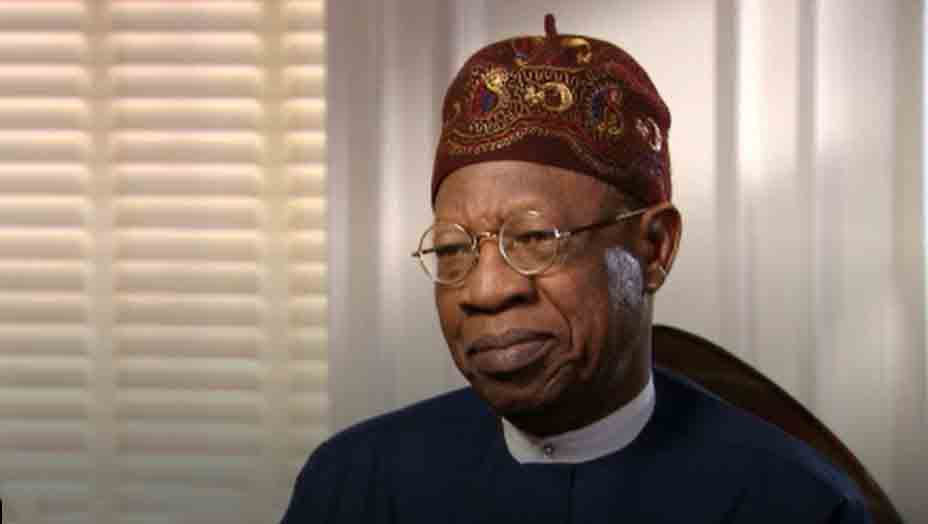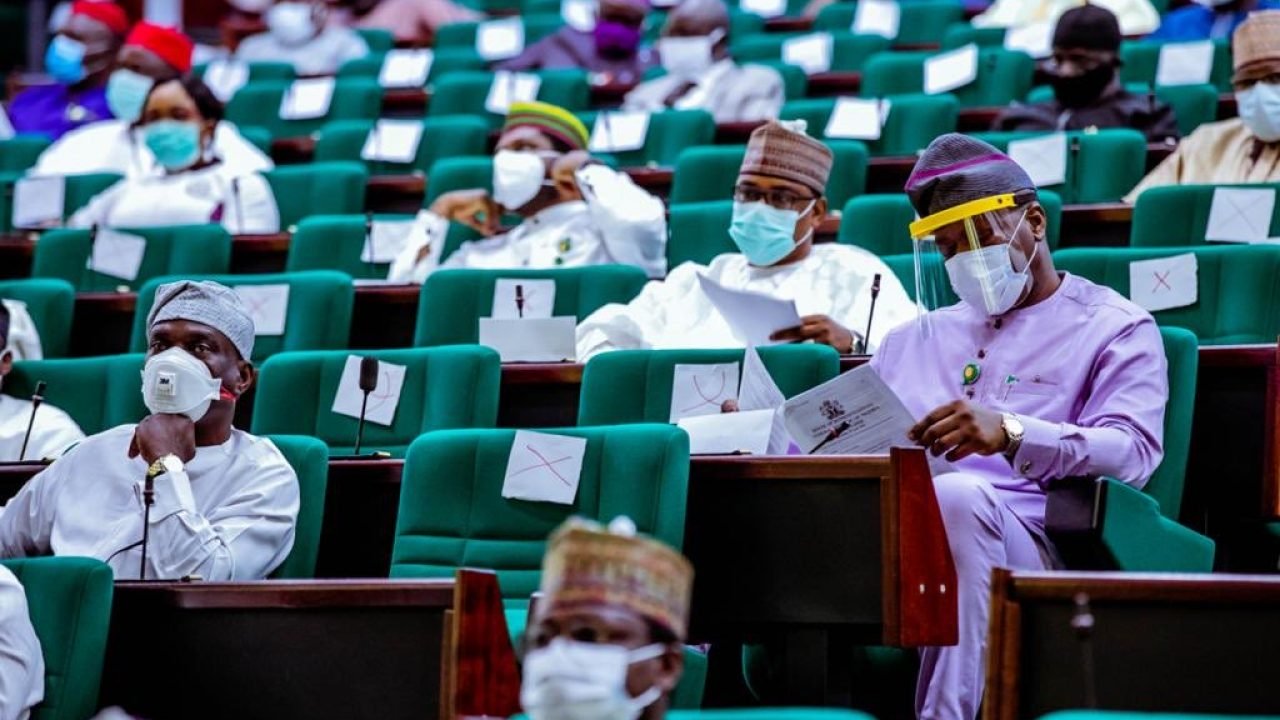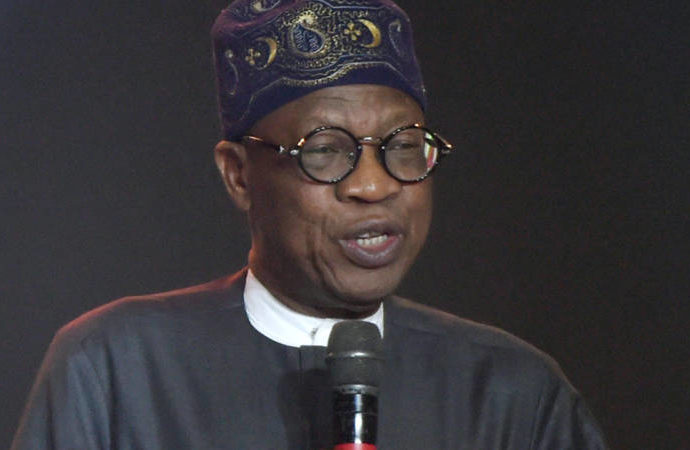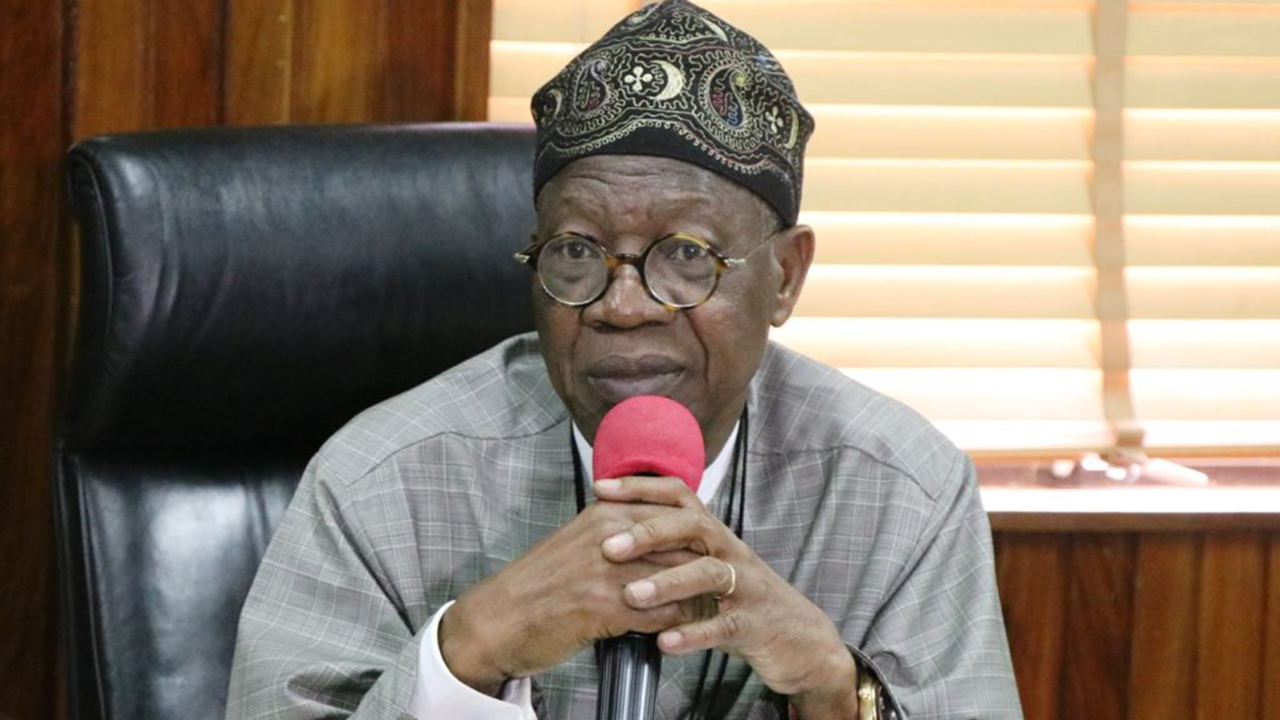The Minister of Information and Culture, Lai Mohammed, has defended the decision of the government to increase the price of Premium Motor Spirit (PMS), also known as petrol.
He attributed the increased amount to the global price of crude oil, saying the “angry reactions” that have greeted the latest petrol price were “unnecessary and totally mischievous”.
Mohammed made the remarks on Monday at a press conference in Abuja on the recent increases in petrol price and electricity tariff.
He explained that with the price of crude creeping up, petrol price was equally bound to increase, hence the latest price of N162 per litre.
The minister, however, believes if the price of crude drops again, the price of petrol will also drop and the benefits will also be passed on to the consumers.
He stressed that despite the recent increase in the price of petrol, that of Nigeria has remained the lowest in the West and Central African sub-regions.
According to Mohammed, petrol is being sold for N211 per litre and N168 per litre in Egypt and Saudi Arabia respectively.
On the hike in electricity tariff, he described the increase as a service-based adjustment by the Distribution Companies (DISCOS).
The minister stated that due to the problems with the largely-privatised electricity industry, the Federal Government has been supporting the sector.
He said while the government has so far spent almost N1.7 trillion, especially by way of supplementing tariffs shortfalls and does not have the resources to continue, borrowing to subsidise generation and distribution which have been privatised would be grossly irresponsible.
A fuel station in Lagos sells petrol at N162 per litre.
Read the minister’s full remarks at the press briefing below:
TEXT OF THE PRESS CONFERENCE ADDRESSED BY THE HON MINISTER OF INFORMATION AND CULTURE, ALHAJI LAI MOHAMMED, IN ABUJA ON MONDAY, 7 SEPT. 2020 ON THE RECENT INCREASES IN PETROL AND ELECTRICITY PRICES
PROTOCOL
Gentlemen of the press, good afternoon, and thank you for honouring our invitation to this press conference, which we have called to address the recent issues surrounding the price of fuel and electricity tariff.
FUEL PRICES
As you are aware, the long-drawn fuel subsidy regime ended in March 2020, when the Petroleum Products Pricing Regulatory Agency (PPPRA) announced that it had begun fuel price modulation, in accordance with prevailing market dynamics, and would respond appropriately to any further oil market development.
Recall that the price of fuel then dropped from 145 to 125 Naira per litre, and then to between 121.50 and 123.50 Naira per litre in May. With the low price of crude oil then, the cost of petrol, which is a derivative of crude oil, fell, and the lower pump price was passed on to the consumers to enjoy.
With the price of crude inching up, the price of petrol locally is also bound to increase, hence the latest price of 162 Naira per litre. If perchance, the price of crude drops again, the price of petrol will also drop, and the benefits will also be passed on to the consumers.
The angry reactions that have greeted the latest prices of Premium Motor Spirit (PMS) are therefore unnecessary and totally mischievous.
Gentlemen, the truth of the matter is that subsidizing fuel is no longer feasible, especially under the prevailing economic conditions in the country.
The government can no longer afford fuel subsidy, as revenues and foreign exchange earnings have fallen by almost 60%, due to the downturn in the fortunes of the oil sector. Yet, the government has had to sustain expenditures, especially on salaries and capital projects.
Even though we have acted to mitigate the effect of the economic slowdown by adopting an Economic Sustainability Plan, we have also had to take some difficult decisions to stop unsustainable practices that were weighing the economy down.
One of such difficult decisions, which we took at the beginning of the Covid-19 pandemic in March – when oil prices collapsed at the height of the global lockdown – was the deregulation of the prices of PMS.
As I said earlier, the benefit of lower prices at that time was passed to consumers. Everyone welcomed the lower fuel price then. Again, the effect of deregulation is that PMS prices will change with changes in global oil prices.
This means quite regrettably that as oil prices recover, there will be some increases in PMS prices. This is what has happened now.
Government can no longer afford to subsidize petrol prices, because of its many negative consequences. These include a return to the costly subsidy regime. With 60% less revenues today, we cannot afford the cost. The second danger is the potential return of fuel queues – which has, thankfully, become a thing of the past under this Administration.
The days in which Nigerians queue for hours and days just to buy petrol, often at very high prices, are gone for good. Of course, there is also no provision for fuel subsidy in the revised 2020 budget, because we just cannot afford it.
Gentlemen, the cost of fuel subsidy is too high and unsustainable. From 2006 to 2019, fuel subsidy gulped 10.413 Trillion Naira. That is an average of 743.8 billion Naira per annum.
According to figures provided by the NNPC, the breakdown of the 14-year subsidy is as follows:
– In 2006 Subsidy was 257bn
– In 2007 Subsidy was 272bn
– In 2008 Subsidy was 631bn
– In 2009 469bn
– In 2010 667bn
– In 2011 2.105tn
– In 2012 1.355tn
– In 2013 1.316tn
– In 2014 1.217tn
– In 2015 654bn
– In 2016 Figure Not Available
– In 2017 Subsidy was 144.3bn
– In 2018 730.86bn
– And in 2019 Subsidy was 595bn
The Federal Government is not unmindful of the pains associated with higher fuel prices at this time. That is why we will continue to seek ways to cushion the pains, especially for the most vulnerable Nigerians.
The government is providing cheaper and more efficient fuel in form of autogas. Also, Government, through the PPPRA, will ensure that marketers do not exploit citizens through arbitrarily hike in pump prices.
And that is why the PPPRA announced the range of prices that must not be exceeded by marketers.
9 In spite of the recent increase in the price of fuel to 162 Naira per litre, petrol prices in Nigeria remain the lowest in the West/Central African sub-regions.
Below is a comparative analysis of petrol prices in the sub-regions (Naira equivalent per litre);
– Nigeria – 162 Naira per litre
– Ghana – 332 Naira per litre
– Benin – 359 Naira per litre
– Togo – 300 Naira per litre
– Niger – 346 Naira per litre
– Chad – 366 Naira per litre
– Cameroon – 449 Naira per litre
– Burkina Faso – 433 Naira per Litre
– Mali – 476 Naira per litre
– Liberia – 257 Naira per litre
– Sierra Leone – 281 Naira per litre
– Guinea – 363 Naira per litre
– Senegal – 549 Naira per litre
Outside the sub-region, petrol sells for 211 Naira per litre in Egypt and 168 Naira per litre in Saudi Arabia.
You can now see that even with the removal of subsidy, fuel price in Nigeria remains among the cheapest in Africa.
ELECTRICITY TARIFF
Another issue we want to address here today is the recent service-based electricity tariff adjustment by the Distribution Companies or DISCOS.
The truth of the matter is that due to the problems with the largely-privatised electricity industry, the government has been supporting the industry.
To keep the industry going, the government has so far spent almost 1.7 trillion Naira, especially by way of supplementing tariffs shortfalls. The government does not have the resources to continue along this path.
To borrow just to subsidise generation and distribution, which are both privatized, will be grossly irresponsible.
But in order to protect the large majority of Nigerians who cannot afford to pay cost-reflective tariffs from increases, the industry regulator, NERC, has approved that tariff adjustments had to be made but only on the basis of guaranteed improvement in service.
Under this new arrangement, only customers with guaranteed minimum of 12 hours of electricity can have their tariffs adjusted. Those who get less than 12 hours supply will experience no increase.
This is the largest group of customers.
Government has also noted the complaints about arbitrary estimated billing. Accordingly, a mass metering programme is being undertaken to provide meters for over 5 million Nigerians, largely driven by preferred procurement from local manufacturers, and creating thousands of jobs in the process.
NERC will also strictly enforce the capping regulation to ensure that unmetered customers are not charged beyond the metered customers in their neighbourhood. In other words, there will be no more estimated billings.
The government is also taking steps to connect those Nigerians who are not even connected to electricity at all. As you are aware, under its Economic Sustainability Plan, the government is providing solar power to 5 million Nigerian households in the next 12 months.
This alone will produce 250,000 jobs and impact up to 25 million beneficiaries through the installation, thus ensuring that more Nigerians will have access to electricity via a reliable and sustainable solar system.
Gentlemen, please note that despite the recent service-based tariff review, the cost of electricity in Nigeria is still cheaper or compares favourably with that of many countries in Africa.
COST IN NAIRA PER KWH IN SOME AFRICAN COUNTRIES.
– Nigeria 49.75
– Senegal 71.17
– Guinea 41.36
– Sierra Leone 106.02
– Liberia 206.01
– Niger 59.28
– Mali 88.23
– Burkina Faso 85.09
– Togo 79.88
CONCLUSION
Gentlemen, the timing of these two necessary adjustments, in the petroleum and power sectors, has raised some concerns among Nigerians. This is a mere coincidence.
First, the deregulation of PMS prices was announced on 18 March 2020, and the price modulation that took place at the beginning of this month was just part of the on-going monthly adjustments to global crude oil prices.
Also, the review of service-based electricity tariffs was scheduled to start at the beginning of July 2020 but was put on hold so that further studies and proper arrangements can be made.
Like Mr President said today, at the opening of the Ministerial Retreat, this government is not insensitive to the current economic difficulties our people are going through and the very tough economic situation we face as a nation. We certainly will not inflict hardship on our people.
But we are convinced that if we stay focused on our plans, brighter and more prosperous days will come soon.
The opportunistic opposition and their allies are playing dirty politics with the issue of petrol pricing and electricity tariff.
Please note that these naysayers did not complain when the price adjustment led to lower petrol prices on at least two occasions since March.
Nigerians must therefore renounce those who have latched onto the issue of petrol pricing and electricity tariff review to throw the country into chaos.
19. I thank you all for your kind attention
